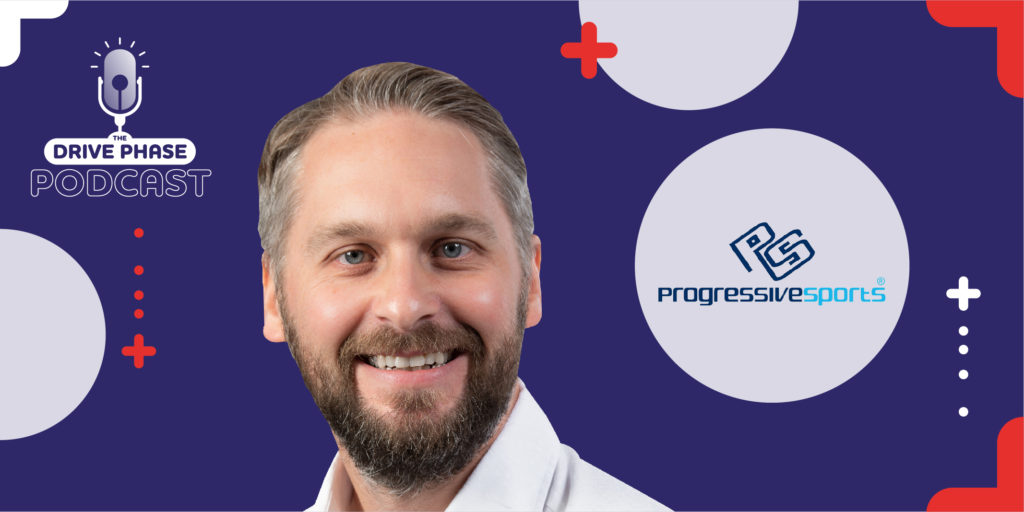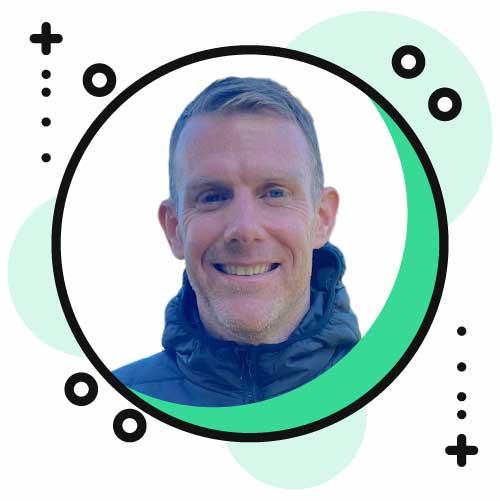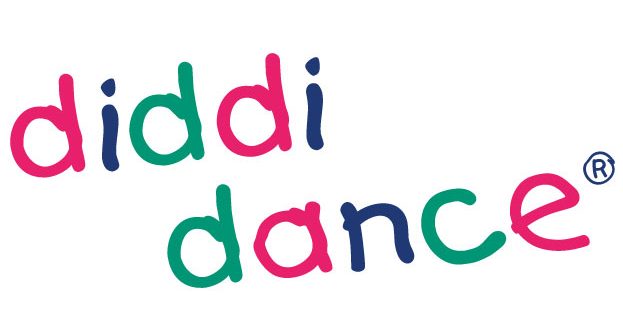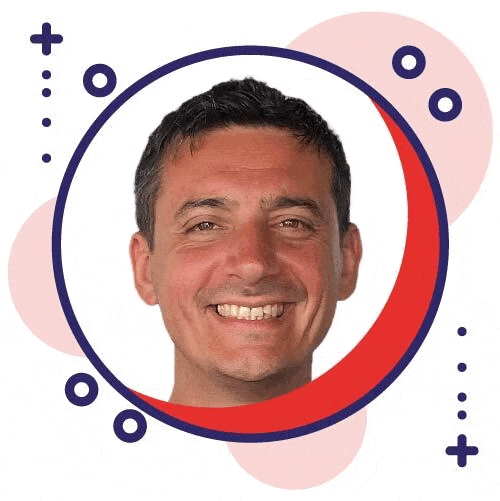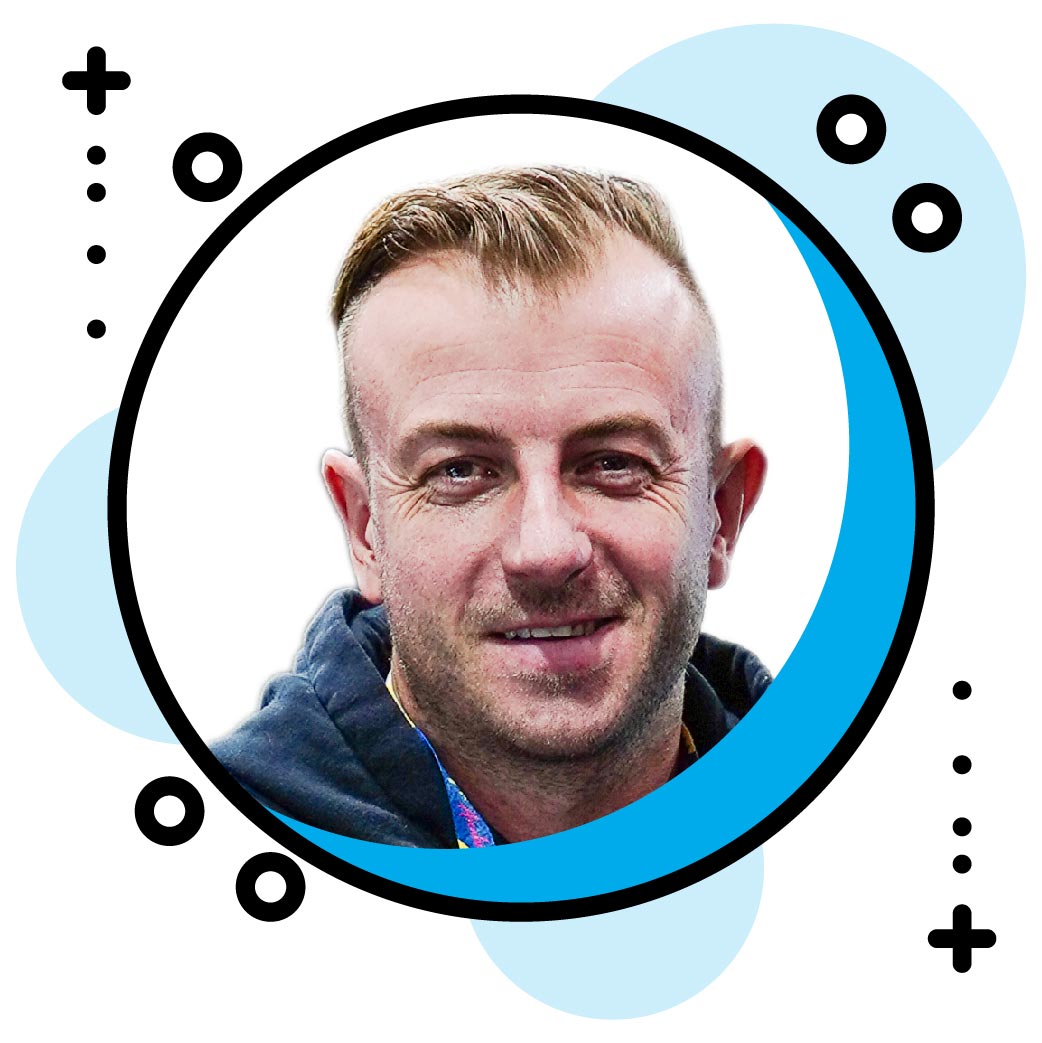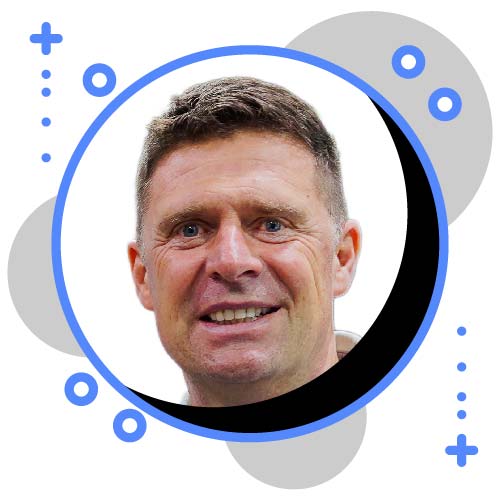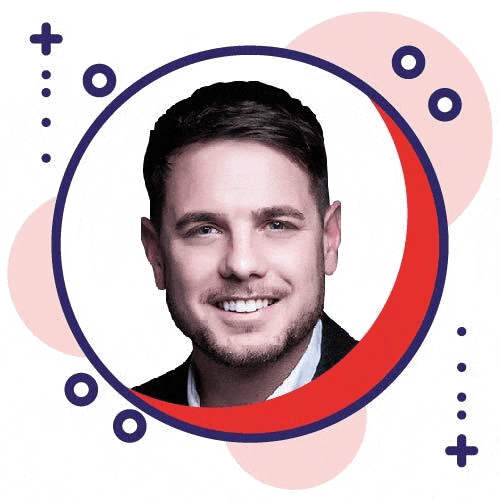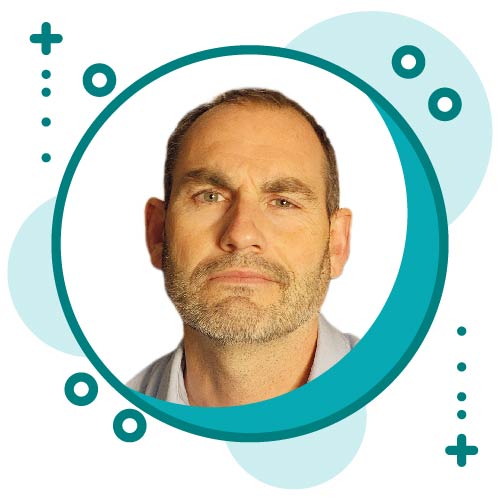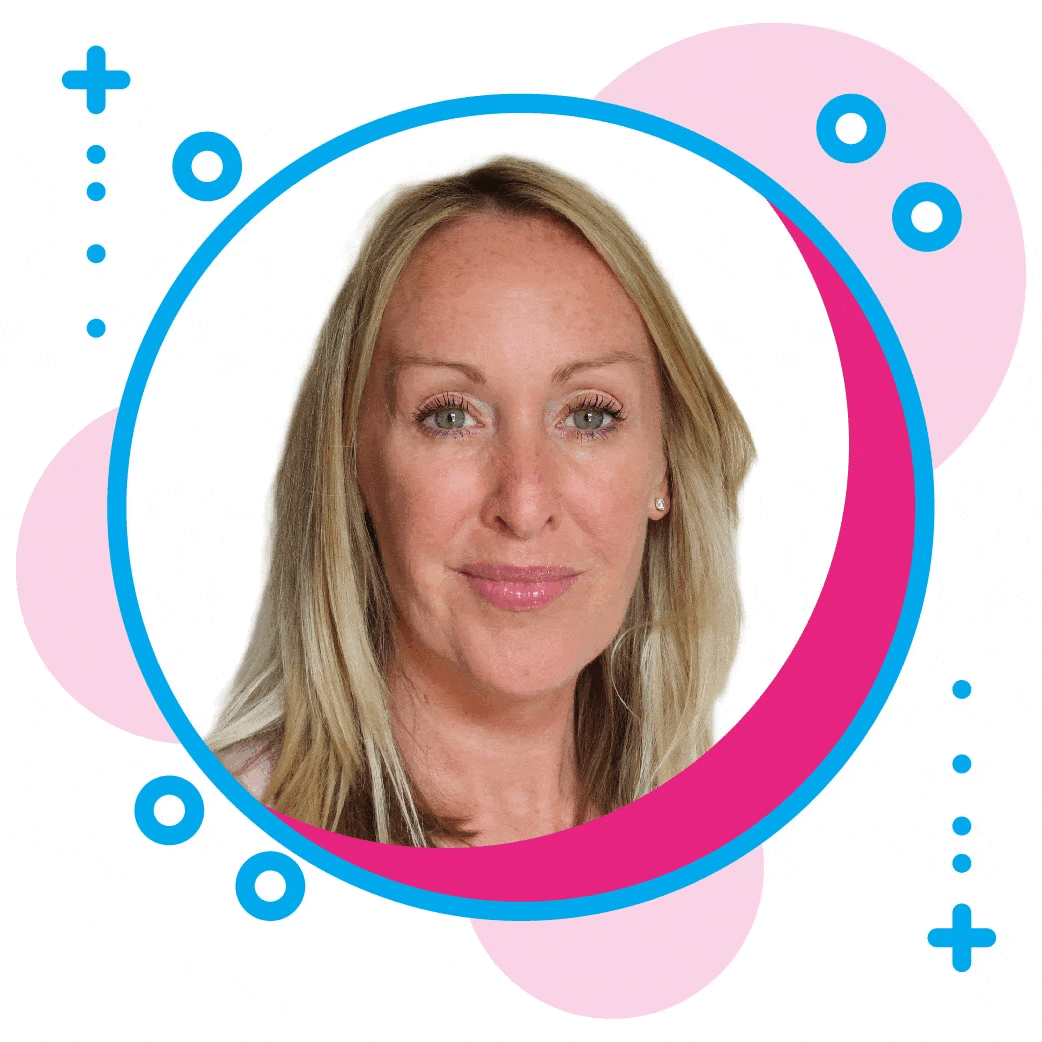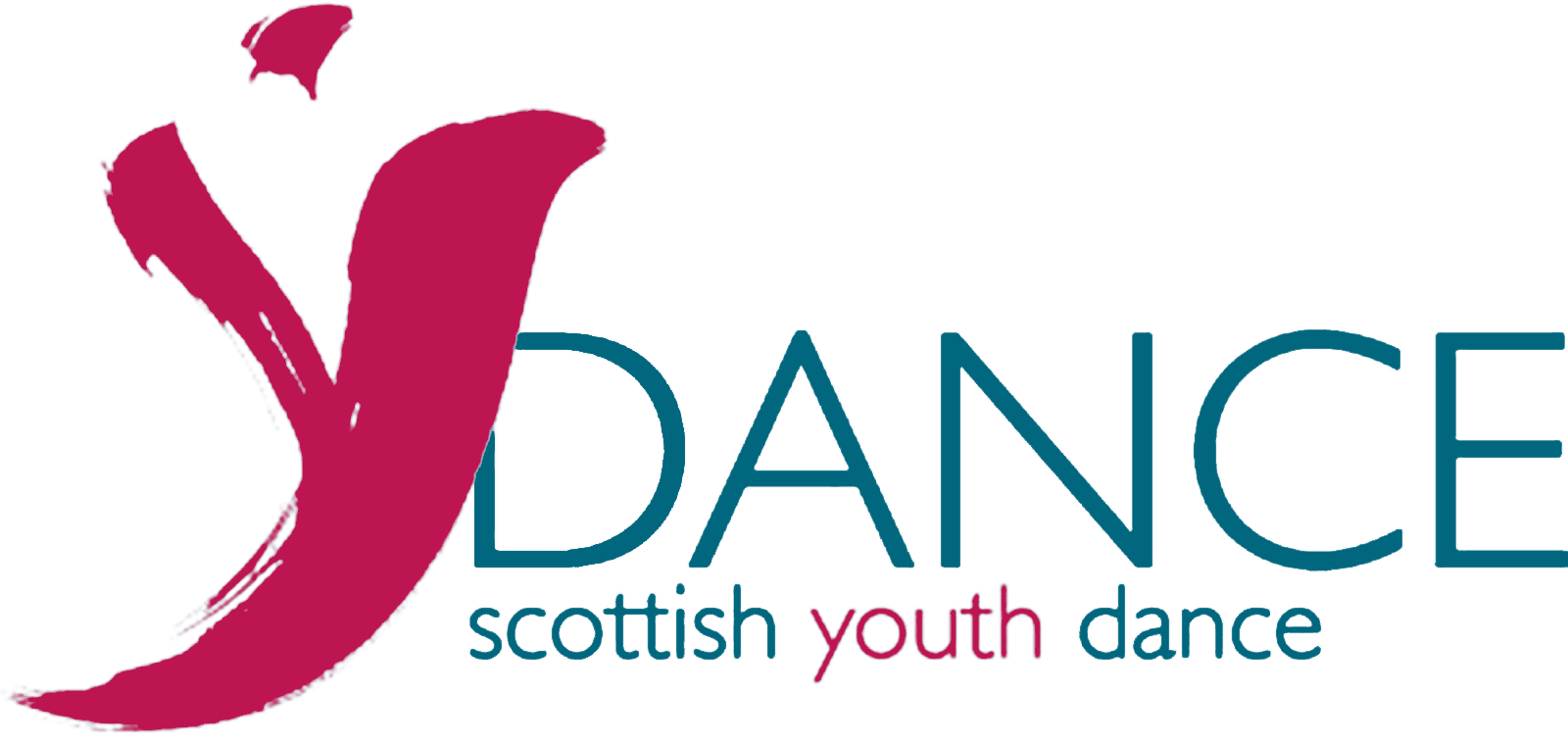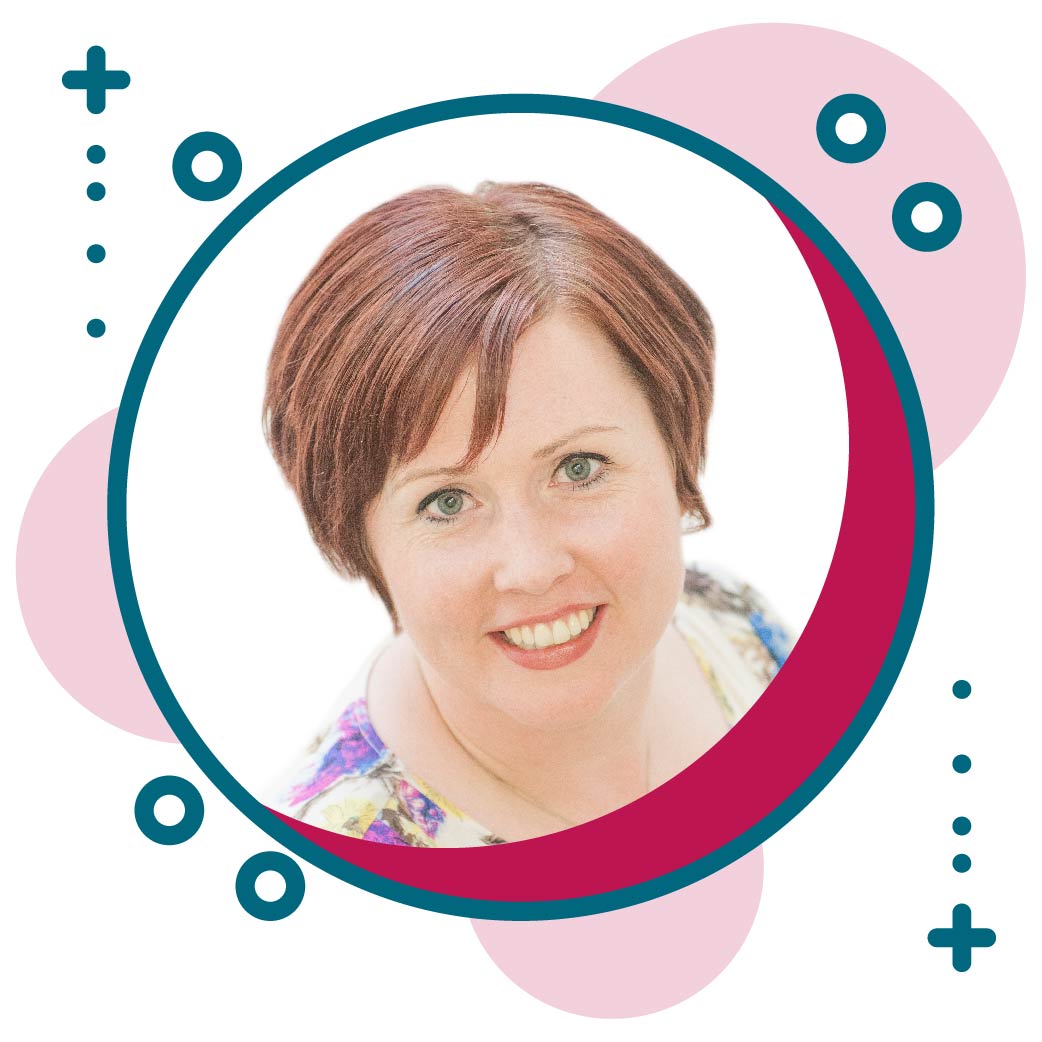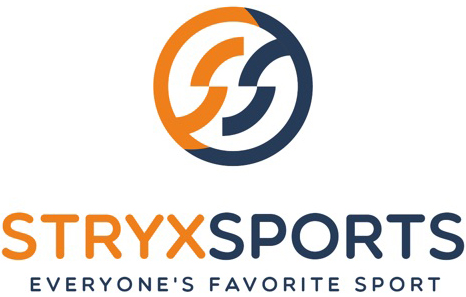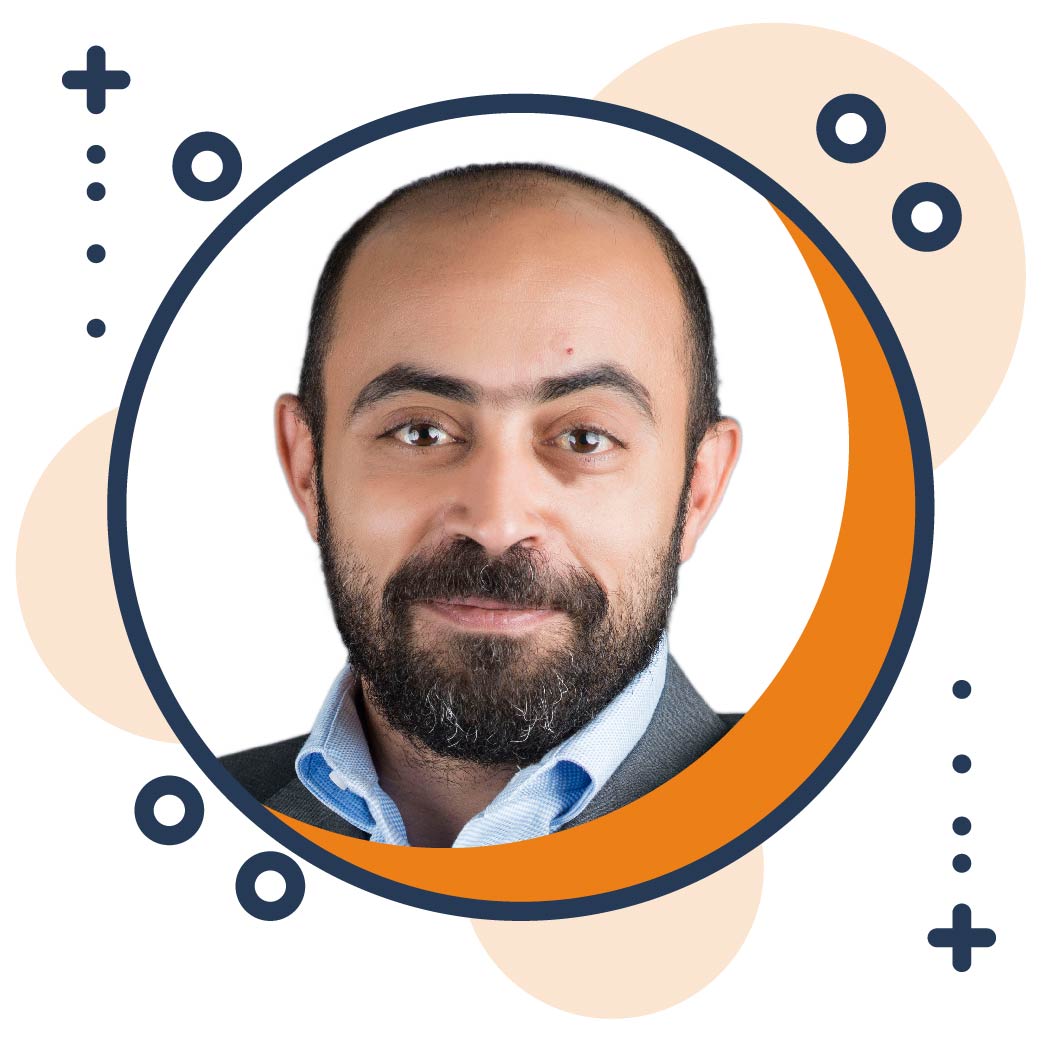Eddie Ray 0:00
You need to have clear objectives, targets, and goals that the whole team is striving to achieve. They should all be brought into that ambition and that long term foresight to where the business is going. People need that. If you want to keep hold of good people, then they certainly want to know where you’re heading as a business. Because they want opportunities to grow themselves, so I think that’d be that one thing, you need to do some proper planning.
James Moore 0:32
From Coordinate Sport, it’s the Drive Phase. A show about sports founders, leaders and experts, and the stories behind their business journeys. Our guest on this week’s episode is Eddie Ray, Staffordshire based serial entrepreneur operating multiple businesses in the sector, six in total. He’s the founder of the Progressive Sports brand, which spans sports coaching, franchising, and facility management. In this episode, we hear Eddie’s thoughts on how to stand out in a crowded market, using social media marketing to promote yourself and your brand. Eddie used his experience in sport to launch and scale the Progressive Sports brand. He talks us through his journey from starting out to franchising nationally. He is now also a partner in Liv Well, a suite of online resources for schools designed to improve children’s well being. So sit back, and listen to Eddie’s take on how to launch and scale a brand and the importance of maintaining quality at all times.
An entrepreneur, franchisor, and investor, Eddie is a director of six different businesses within the education sector. His mission is to inspire and encourage children to be physically active, a really positive mission. Welcome to the show today Eddie.
Eddie Ray 1:52
Thank you, James.
James Moore 1:52
Like I was talking to you about before, some big announcements this week, but we’re going to try and keep it positive, looking at all the positive work you’re doing across your different brands. Generally, how we tend to start the podcast is we look at your journey. So in your early life, you were born and raised in Staffordshire. Is that right?
Eddie Ray 2:13
Correct, Rugeley.
James Moore 2:17
I actually got married out in Staffordshire, in a place called Endon. Is it Endon?
Eddie Ray 2:21
Endon, yeah.
James Moore 2:22
Yeah, nice part of the world. So I’ve got good memories of that.
Eddie Ray 2:26
Well, if you’re down this way, come and visit. I’ll open the door for you.
James Moore 2:31
Will do, so tell us a bit about your childhood. How were things growing up?
Eddie Ray 2:36
Very normal, I suppose, whatever normal is. I had a good supportive family network. Both my parents worked, dad ran a building business and was a bricklayer by trade, and mum did a lot of office-based jobs. I’ve also got a younger sister. I was just mad about sports. And that was one thing that I’ve enjoyed from a very young age, and I carried that through my whole school life. Playing sport, keeping physically fit, and physically active. It was a very normal working-class upbringing.
James Moore 3:14
So do you think you were a sporty family? I know you said you were sporty as a child. Were you competitive with your sister or your other family members?
Eddie Ray 3:23
My sister was more academic, while I was more about doing sport. That was definitely my thing. But my dad 100%, he was very active and still active today. So we played Tennis and Football, things like that. I still give him a game of tennis now and then, get him running a little bit.
James Moore 3:48
So do you let him win then?
Eddie Ray 3:50
No, do I let him win!
James Moore 3:55
I’ve got down on our notes that academically you coasted through school? I don’t know whether we found that out talking to your teachers or if you’ve given us that.
Eddie Ray 4:05
I don’t know, have you been speaking to somebody? Joking aside, I wasn’t overly academic, but I think coasting had been referred to several times on school reports. I suppose as you get older, you get wiser, and you start to look back and reflect on things more. For anybody listening, education is incredibly important. And I’d never dismissed that because it is, and obviously, I tell my children that. But I think we’ve got to be careful that we don’t say it’s the be-all and end-all because it certainly isn’t. There are different paths that we can all take, and we all find our route. Hopefully to something that you’re passionate about and really enjoy. I suppose it’s about developing attributes, and we need to develop that in our young people. Whether it’s resilience, problem-solving, good communication, or relationships. Those skills are standards when going into work, and I believe I must have some of those qualities to help me run a business.
James Moore 5:09
Having said that, I know you went onto study, was it sports science or sports coaching?
Eddie Ray 5:14
Yeah, sports science. I studied that at college.
James Moore 5:20
I know we have many students studying sports science. Do you think that’s helped you in your career in terms of coaching, practically? I know there’s that debate on university degrees and how practical they are, etc.
Eddie Ray 5:36
The sports science course was quite broad. You don’t really delve into too much detail in some areas, and you’re looking at certain topics each half term. So from the coaching aspect, I looked more outside of college. We did a little bit of coaching on the course, studying various practices, philosophies, etc. But I think that only really accelerated when I started to look outside of college. I did an FA course back in probably 1998, which is now equivalent to the level 2 FA coaching certificate, and I suppose that’s when I first started on that journey to develop as a coach and fall in love with it. Not just doing coaching courses, but it was also about finding people that I could learn from. With clubs and various other things, I started to develop an understanding and a love for working with children and then getting out there and coaching kids.
James Moore 6:41
Definitely, and I know that’s led to the launch of the business. I just wanted to take a step back to growing up. You had a sporty outlook on things, but in terms of that entrepreneurial spark, that itch to start a business, was that something you had at an early age? Or is that something you noticed as you began coaching and thought there was an opportunity there?
Eddie Ray 7:08
I think, subconsciously, there must have been some things that came from my environment. My dad ran a business, and so did my uncle. He ran quite a large company and still does. I must have been influenced by that in some way, subconsciously taken some of that in. From about 16 onwards, I did think I would go on and run my own business. At that age, I wasn’t quite sure what it would be, what sector I’d go and work in, but I think the seeds had already been planted. Those early thoughts of yes, I would like to take that as a route. So I think some of it was subconscious, and some from my environment. But I did have that early thirst to get out there and run a business.
James Moore 7:59
Yeah, brilliant, and I suppose you’ve seen what it takes to be successful, having watched a couple of entrepreneurs going through it all in the family. So now that’s led to you running six companies, a fantastic achievement, I’d say, for time management as well, by the sounds of it.
Eddie Ray 8:16
I’ve been working my desk late.
James Moore 8:24
We could be here for hours looking at all the different businesses, but I want to focus on the standout one, Progressive Sports, and the new venture with Liv Well. So, if I take you back to the start around 2005, you’ve been coaching a bit at college, and then as a freelancer, you worked for another organisation. Do you want to expand on that, how you came about launching?
Eddie Ray 8:47
When I left college, I was at a crossroads in my early career, trying to decide on what I wanted to do. A lot of people that I went to college with started looking at going to university. But I had already started working on a part-time basis working for a local organisation. Delivering after school clubs and various other activities in some local schools. And I decided that was the path that I wanted to go down. I enjoyed what I was doing, so I just got into doing some work on a freelance basis for that company. I did that for several years, from 1999 to about 2005, and I worked for them on various projects. Back in the day, there were lots of after school clubs and holiday activities, and that was where we would get involved with schools. I suppose that’s where I learned my trade. I worked with some good people and started to build up a network of contacts in schools through the work I was doing for that organisation.
James Moore 10:02
Can you remember thinking about when you wanted to make the jump? Was it finishing college, or was it a case that you always had a plan to go out on your own?
Eddie Ray 10:10
Yeah, I suppose because I was self-employed anyway, I saw that as me being in control. Anyway, I wasn’t just working for him. I was also working for other people. For example, I did work for Monday Night Soccer Schools.
James Moore 10:30
Already running your own business then?
Eddie Ray 10:31
Yeah, on a smaller scale. I suppose I already had that mindset that I wasn’t necessarily employed by somebody. I was controlling things myself by working for several people. But it was just a gear change. I got to a point where I really wanted to take that next leap. Which was to set up my own business, and that’s where things started to snowball. We gained some traction and begun to move things forward.
James Moore 11:03
Skipping forward to the stats we’ve got now, you’re working with over 75,000 children a week and have 200+ team members. So obviously a lot of moving parts there to deal with. What was the first milestone when you thought, I’ve actually got something here? Obviously, you were good at coaching, but when it comes to business, it’s a slightly different angle. So is there a time when you thought this could be something big, that light bulb moment?
Eddie Ray 11:32
I don’t think I can identify one particular light bulb moment. I think a lot of it was organic growth. Early on, I thought we’ve probably got something that’s working here. For the first three years, we doubled the turnover year after year. So I thought we’re obviously doing something right. We’ve got some good people, and schools like what we’re doing. So I think that was a big indicator that we were doing the right things, and had the right culture set from the start. But a lot of it’s just been organic growth and opportunities. We’ve never been shy of taking that next step. Then we looked at franchising and decided that was the route that we’re going to take to create a bigger reach. We wanted to start working with more individuals and impact more children. That’s the route we as a business decided to go down. Rather than spreading more geographically, we decided to go down the franchising route to expand the business.
James Moore 12:36
Just on franchising, it’s a topic that comes up on the podcast quite regularly. You said you made that decision so you could grow. What was the process like for you? Was it a heavy upfront investment, and was it a risk at the time investing in all of the infrastructures to run a franchise nationally?
Eddie Ray 13:00
It’s quite a liberating thing to do. If anybody’s read the E-Myth, which talks about how every business should operate like a franchisor. So picking through the systems and processes, going through every function in your business and systemising it. That was quite a liberating thing to do, picking apart every element and function that the business does so that you can teach someone else how to do it. Give someone a manual, and off they go, and they replicate the same model in another part of the country. So that was a good experience. It’s not a quick thing to do. I think we probably engaged with the franchise consultant for nearly a year before we launched it. There’s a lot of legwork to do, but I thoroughly enjoyed it. It’s helped us meet new people, widen our network, and open doors, so it’s been a good experience. As with anything, there’s good bits and bad bits. But I wouldn’t change that decision.
James Moore 14:00
And that was back in 2009 you decided to start a franchise, or when you launched your first one?
Eddie Ray 14:06
Yeah.
James Moore 14:07
Just to give an idea to the listeners, but in terms of the cost associated with that, do you mind sharing the monetary value it took to set up a franchise separately from the normal day-to-day business?
Eddie Ray 14:21
It might be more expensive now, but going back nearly 10+ years, I think the engagement with a consultant and all the legal costs was around £20k to £25k to get the business in a position that we could actually franchise it. Then as with everything, if you’ve it rolling out, you need a certain amount of capital behind you to go and market the business. Whether that’s attending exhibitions, online marketing, or whatever we needed to grow the business, there was a cost associated with that. That ongoing marketing budget could be anywhere between £20k to £30k a year to actually attract people to come into the network.
James Moore 15:09
I think that’s something that you see, organisations setting up franchises quite quickly, and maybe they don’t put that diligent approach in before they launch. It’s good that you’ve shared that, so people know it’s something you can’t jump into lightly because it’s going to sting you later on if you haven’t done everything right.
Eddie Ray 15:31
Yeah, 100%. I think it sometimes becomes fashionable to do what our competitors do. Sometimes we look at people and think, well, they’re doing it, so we’ll do it. But there’s a lot of leg work that goes behind it. Also, with franchising, you may not be competing with them, but you’re sharing the same exhibition space as McDonald’s and Apple. It’s expensive to do some of these things. So I think sometimes people go into it naively. Engage with a consultant, do your research, and speak to people that are already a franchisor. Get that account to really understand what the good bits and the bad bits are, and then decide whether that’s a route you want to go down. You can grow quicker, and you’re not taking all the day to day costs on board because that’s taken by the franchisee. So there are lots of positives to franchising, and for the right person and the right business, it is a good route to explore.
James Moore 16:46
Yeah, and it turned out well for you. Just going back to before you started franchising, when you were running the business day to day, what was one of the main recurring challenges that you had to deal with?
Eddie Ray 17:13
I think that they’re probably the same challenges now, to be honest, James. I think they’re just sometimes on a bigger scale, either with more people or with larger sums of money. But I think those challenges from day one are not too different from what they are now. Whether that’s operational challenges around getting the right people in, or training them, those growing challenges. Most people want to grow the business, and there are challenges around marketing and sales. Standing out from the crowd, being a little bit different. Having something that’s a unique proposition is important, especially in what is now a lot more of a crowded space. I think no business wants to be commoditised, and there’s a certain degree of commoditisation within our industry. Then if that is the case, it’s always a race to the bottom for customers who can do the cheapest, which is not a great position to be in as a business. So I think to answer that I’d say the same problems, just on a bigger scale.
James Moore 18:20
Yeah, and like you said, standing out from the crowd. One thing I’ve noticed about yourself is that you’re really active on social media, so you’re getting noticed in the right places, in my opinion anyway. So is that something that you’ve set out as a strategy to do? Trying to attract franchisees and new customers, but also you seem to have a finger on the pulse on that conversation across the industry?
Eddie Ray 18:43
Yeah, I think you’ve got to engage in that avenue. There are two ways of marketing your business. You’ve got to be a bit more targeted if you’re running a campaign around a specific service or to a specific customer base, so we are campaign-driven in that respect. But also from a marketing perspective, we’ve got to make a little bit of noise and put some content out there. That might not necessarily result in sales straight away, but I think you need to be consistent and put stuff out there. As a business, you mustn’t stay silent. You need to communicate, whether that’s direct to people or just putting information out there and hope people will pick up on that and start engaging with it.
James Moore 19:34
Yeah, I think you’re right. The industry is full of good news stories, with all the services you’re delivering, it’s not hard to find a bit of content. You can go down to any of your sessions, and it’s just there for you. I guess a tip for the listeners out there is to get out and shout about what you’re doing. Not to turn it negative, but what’s been the biggest setback in your journey of growing Progressive Sports?
Eddie Ray 20:15
Should I say COVID?
James Moore 20:17
Yeah, let’s get into that, sure.
Eddie Ray 20:19
Joking aside, that has obviously provided challenges for us and probably many of the listeners as well. I think one of the biggest challenges, which COVID has impacted, is cash flow. Not having enough cash to grow the business, and COVID related outgoings and the direct costs. But I think they’ve been some of the biggest challenges, and a lesson learned there for any business owners, you need to understand your numbers. If you don’t understand your business numbers, you need to have a really good accountant to support you. But even if you’ve got a great accountant, I think you also need to understand it yourself, because you’ve got to be able to ask them the right questions. There’s plenty of people out there that you can learn from or stuff you can read. But you’ve got to have a grasp of your business numbers, and you need to know whether you’re winning or losing. Because if you don’t know that, it makes it hard for you to start scaling something up and growing it. If there are weaknesses and flaws in your business, and you scale it up, you’ll exaggerate those flaws.
James Moore 21:29
Definitely, cash is key. In terms of dealing with that issue, I don’t know if it’s just yourself as director across all the businesses, but have you ever had to raise any external investment or bring on investors?
Eddie Ray 21:46
We’ve had external funding come into the business, but not through investments or giving away equity, we haven’t done that. Whether it’s the bank or personally, we’ve put money in that way. So we’ve had to inject cash into the business from time to time, as most businesses have to.
James Moore 22:04
Especially if you’re growing that quickly as well, that’s where you’re going to get caught out.
Eddie Ray 22:08
Yeah, 100%. If you’re not generating enough cash or leaving enough money in the bank each month to fund your growth, then you’re going to need external funding. That’s not a bad thing at all, as long as it’s manageable and you can make those repayments. All businesses have to look at that if they have aspirations of growing.
James Moore 22:33
I agree. One question I always try to ask is what do you think are some of the common myths about the sports coaching industry? Something that pushes your buttons, maybe.
Eddie Ray 22:59
A common frustration that some people listening might agree with is sometimes when you use the word coach within an education setting, certain people don’t believe that person is good enough to stand in front of a group of children and teach them independently. So I think there’s still a certain amount of that which goes on. There’s a belief that every coach needs to have a level two qualification in every sport to deliver to a group of children. It’s nonsense. Because at the end of the day, it’s about competency to deliver and support those children to make progress. You need to have an understanding of the principles of coaching and understand how children physically develop. So that’s something we’ve been battling with to a degree from day one of starting the business, and I’m sure other people would echo those thoughts and understand that. So I suppose that’s a bit of a frustration. There’s a lot of good staff out there, talk to the organisations that are sending people into education environments to make sure they’re well trained, well supported, and are the right people. Also, that they have the right skills and qualifications to support young people to develop, and they are the right model role models. So I’d say that’s probably something that pushes my buttons.
James Moore 24:45
That takes me onto the next one. We always look at how things have changed, but I know from my observation, the level of quality assurance and the focus that organisations put on that now versus 10-15 years ago, there’s a massive difference. Is there any of these observations you have of the industry as it is now and where you feel we are at the moment?
Eddie Ray 25:11
There’s an awful lot of good stuff going on out there. I think we’re seeing a lot more collaboration between organisations. A lot of those companies that maybe started up 10-15 years ago, the business owners are a lot more mature. I think there’s a lot more sharing of good practice. Lots of good schemes, good services are being provided. A lot of innovation and new things are being done. It’s great to see because business owners and entrepreneurs, they’re the job creators, aren’t they? Countries need those people to be successful to create jobs and push the economy forward. So I applaud anybody that starts their own business up. But there’s some good stuff, and you don’t have to look too far.
James Moore 26:07
Yeah, for sure. The owners and entrepreneurs out there need to get the word out, get their marketing right, and get schools to take notice. I know we touched on COVID and the impact that it’s had on the industry. One silver lining to that is that it has highlighted how important the work that all the industry is doing. What with children being cooped up during lockdown, and requiring that physical activity and physical literacy development. I guess that’s just one point, but when we’re looking at the issues we’ve got like childhood obesity, what’s your take on that. How do you think we could potentially fix it?
Eddie Ray 26:50
I don’t think there’s a silver bullet to fix it. I think there are several things that need to happen, whether that’s parenting priorities, finding the right opportunities for children to be active, or good parenting role models. Attitudes towards that are really important. We also need to have a safe space and facilities for children to be active and have a low entry for access to those things. I think parents that have a little more disposable income can ensure that their children get those opportunities, while children from lower-income families miss out. But I think it’s still down to attitude and priorities. From my perspective and my partner’s, we make it a priority that our child is active. It’s important they grow up happy and healthy. The biggest priority in schools always seems to be literacy and numeracy, so sometimes things like PE can take a bit more of a backseat within the school. But at the end of the day, ask most parents what would they want their child to grow up to be, and it would be happy and healthy. So if that is the case, I think we have to place focus on that. Physical well-being, mental well-being, and emotional well-being can all be taught through physical activity. I think developing those attributes and those skills are really important. So I’d say it’s a combination of things that need to happen, and there has been a decline over the last few years in terms of children’s health and more childhood obesity. So some things are and aren’t working, but I think there’s a lot of good stuff going on in schools, and maybe some parents need to be educated more and prioritise better.
James Moore 29:05
Definitely, and that’s a great quote you said then about how most parents would want kids to grow up to be happy and healthy. I think that’s probably the foundation that you would want for your kids. That leads me onto the new venture that you’ve recently started, Liv Well. So do you want to expand on that a little? Tell us what it’s all about?
Eddie Ray 29:26
Yeah, the idea for Liv Well came about 12 months ago, when we were working in some local schools delivering some health and well-being lessons. One of the co-founders met our General Manager while delivering a keynote to some local headteachers around mental health. She’s got a background in education and also runs her own well-being business. We were already doing a little bit in schools, so we talked with Caroline, and she liked what we were doing. We decided to change the model and provide teachers with some online resources and training. That’s basically what Liv Well does. It supports people’s health and well-being through an extensive range of content. That includes lesson plans and teaching resources, which is all stored online. We also offer some training, so we do some Mental Health First Aid training, for example. We help customers with how to use the platform, but it’s all stored online. The idea is we place it into the hands of teachers, and those teachers deliver the lessons, and we support them on how to do that. It can impact personal development, character and some of the things that we’ve already mentioned. It can also become part of the schools’ long-term plan, help with PSHE, and help with running interventions. There’s some really good content, and we’re looking forward to the journey with Liv Well. We just really want to get that content out there and get it to teachers, so then they can start using it.
James Moore 30:33
In terms of the content, is it exclusively for teachers? So sports coaches and those guys who are facilitating lessons, can they access it as well?
Eddie Ray 31:12
So we are taking a two-fold approach to it. We fundamentally want to get it into schools. Whether that’s through us partnering with coaching organisations that might already have contact with schools and allowing them to use the material, but also be a reseller of Liv Well. Or we are directly selling it to schools, and schools take complete ownership of it. Then their teaching staff are using it to support them deliver the PSHE or personal development in schools. We are engaging with other companies that are working within schools, and it gives them that opportunity to be able to deliver health and well-being lessons, and the content has been created by somebody who is an expert in their field. It gives them some really good content that they can go and now impact on the schools, and the children that their staff work with.
James Moore 32:13
What we’ll do is we will link everything in the show notes as well. So if anyone wants to get involved, they can contact you on there. One last question on that, can parents get involved? So I’m thinking about parents like myself during lockdown looking for resources, or is it all for professionals right now?
Eddie Ray 32:31
Just professionals at the moment. We have built an area where there’s information that schools can send out to parents, but that might be phase two or three, where we open it up further. But at the moment, we are just concentrating on giving the material to schools or working with organisations that can then take the material into schools.
James Moore 32:52
Brilliant, well it sounds like just what’s needed right now, and I’m sure it’ll be successful. Coming back to yourself, I know you touched on the book E-Myth Revisited, and I’m a big fan of that as well myself. Have you developed any philosophies or theories throughout your business life that you’ve learned while you’ve been scaling, is there anything you could share with the listeners?
Eddie Ray 33:23
I don’t want to paint a picture on that because a lot of this is learned stuff. From where I was on day one to where I am now, it is completely different. But I think what I’d say is you need to have sort of a plan. Not necessarily how we think of a formal business plan, but you certainly need to know where you’re heading. You’ve got to have some clear objectives, targets, and goals that not just you but the whole team is striving to achieve. They should all be brought into that ambition and that long term foresight to where the business is going. People need that. If you want to keep hold of good people, they certainly want to know where you’re heading as a business because they want opportunities to grow themselves. So I think that’d be one thing, you need to do some proper planning.
James Moore 34:10
I know you mentioned it at the start. Am I right to assume you didn’t have a fully-fledged business plan when you started?
Eddie Ray 34:20
Yeah, it was certainly a bit more organic, and I think at that stage it’s more vocational. I enjoyed what I do. I was on the tools, and I was delivering, and it was great. That was where a lot of my efforts went in, but as you start to grow something, you have to understand the other elements of everyone in the business. I’d also say don’t be afraid to take risks and don’t be afraid to fail. I’ve certainly failed lots of times, but it’s part of the learning process. You have to go through that to develop and grow as an individual and learn from your mistakes. Any business needs good people involved as well, so if you peel back any business there’ll be people inside that the business owner can really trust, and they can support you in your growth. So hire good people, and keep hold of them equally. If they’re not the right person, then get them out of the business. But I suppose those are some things that I have taken away from running the business.
James Moore 35:29
Brilliant, I love that. So do you have a daily routine to keep you at your best, any habits you have?
Eddie Ray 35:38
Personally, I like to get to the gym in the morning if I can. I like to start on the right foot and do a bit of exercise in the mornings. I go to the gym probably from 6:30-7:00, and then I like to get in the office by 8:15-8:30. The first thing I do is plan my day and decide what things are going to help the business move forward today? We’ve got clear objectives of what we want to achieve in the next quarter and year, and I need to be working on those things. They’re the things that are going to make the biggest difference to the business. I’m a bit of a prolific list maker as well, so I make lots of lists. If you could see my desk, it’s usually covered in post-it notes, and there are notes everywhere. That works for me because I need to write things down, make lists and prioritise my workload. I’m pretty good at, I was going to swear them, don’t suppose I can swear?
James Moore 36:41
Yeah, you’re allowed to swear.
Eddie Ray 36:43
I think I’m pretty good at getting shit done and holding myself accountable. Because actions speak louder than words, don’t they, James? I think it’s not just about talking. It’s about the doing. I get stuff done.
James Moore 37:03
Yeah, and I think that’s key. You’ve got to back up what you’re saying you’re going to do. It’s the worst thing if you don’t follow through with it. I share a lot of those habits myself. To wrap up, we have one last question. If you had a time machine and you can go back to when you started the business and give yourself one bit of advice, what would it be?
Eddie Ray 37:29
I’d say to surround yourself with people that are where you want to be. So if you’ve got aspirations to make a million-pound business, a 10-million-pound business, find somebody that’s already doing it. Find someone that can support and help you, and I think we all do need that. When you’re a bit younger, you can be a bit more naive. And being naive isn’t always a bad thing because you’re maybe not overthinking things too much. But you need to find that support because there are people out there that will help you. There are networking groups, and there are things you can do personally to develop yourself. Then enjoy that process, just enjoy it. You will quickly find out whether running a business is for you or not, and if it is, enjoy the journey. Because it is a good journey, some tough times but would I change it? No, I really enjoy what I do. I get up every morning with a spring in my step. Getting out there and supporting children to be more physically active and improve the health and well-being of those people that we work with, and that passion is just as strong now, if not stronger.
James Moore 38:48
Absolutely, I love that. That’s exactly why we launched the podcast, to bring those inspirational figures like yourself to listeners who are just starting their journey’s. You’ve made plenty of mistakes, and hopefully, someone else doesn’t have to. That’s the way we look at it. But thanks so much for your time today Eddie, I appreciate you giving that up. Very insightful and compelling responses there. If they want our listeners to get in touch with you, how would they go about that?
Eddie Ray 39:17
Probably LinkedIn is the best place. So stick Eddie Ray in there, and you’ll find me. I’m happy to connect and answer any questions. If there’s any collaborations or anything we can do, I’m happy to do that.
James Moore 39:30
I can definitely vouch for your content on LinkedIn, there’s always something valuable on there.
Eddie Ray 39:34
All right, lovely James, it was great to talk to you.
James Moore 39:38
Thank you for listening to this week’s show. You can subscribe anywhere you get your podcasts. If you’d like to get in touch with us, you can write to us at drivephase.podcast@coordinatecloud, tweet us @coordinatesport or follow us on Instagram @coordinate_sport or on my account @james_ventures. This episode was produced by Nancy Kwamboka, with support from Claire Goodchild and Lola Small. And a special thanks to Rochelle. I am James Moore, and you’ve been listening to the Drive Phase from Coordinate Sport.
